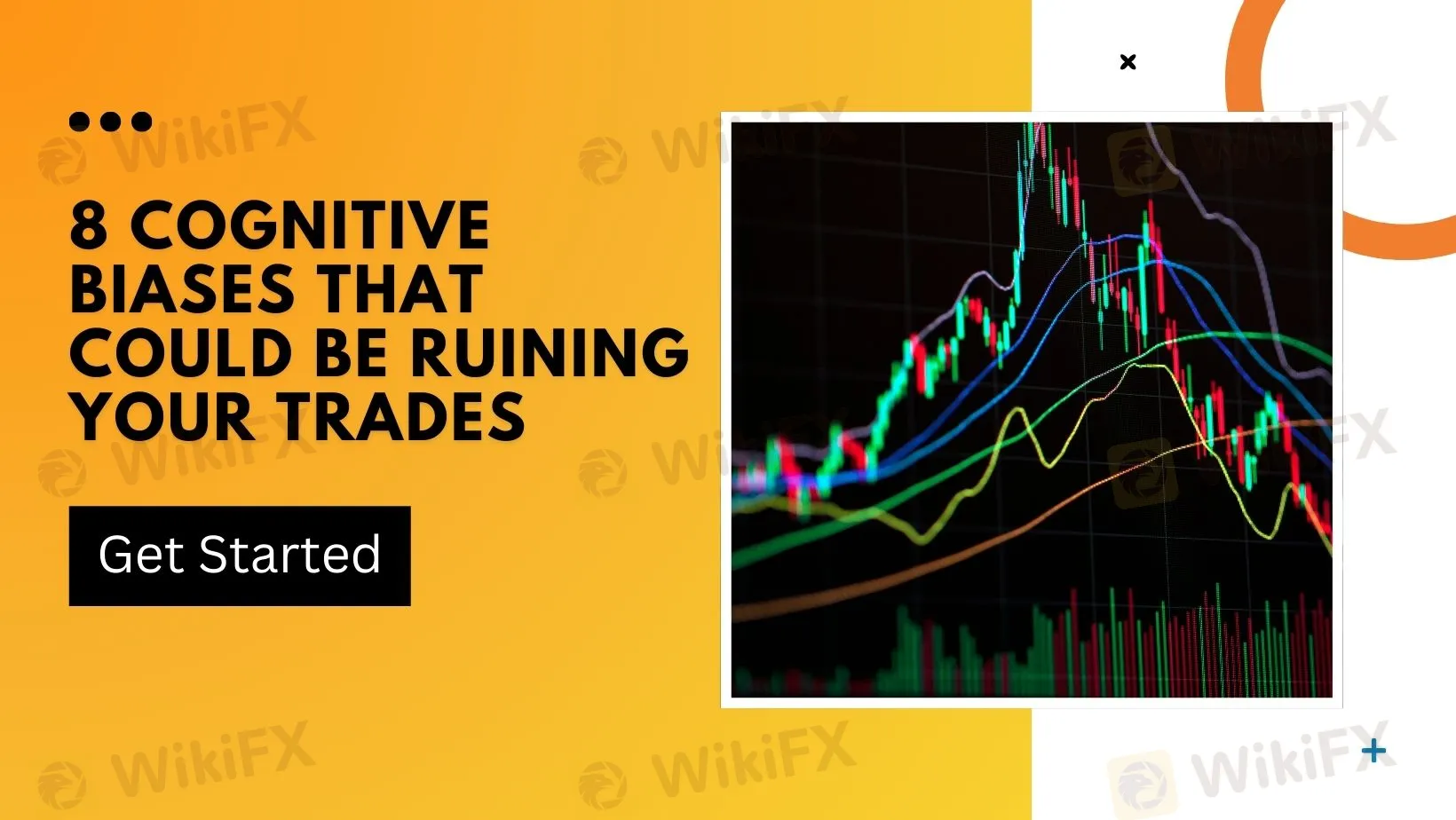简体中文
繁體中文
English
Pусский
日本語
ภาษาไทย
Tiếng Việt
Bahasa Indonesia
Español
हिन्दी
Filippiiniläinen
Français
Deutsch
Português
Türkçe
한국어
العربية
8 Cognitive Biases That Could Be Ruining Your Trades
Abstract:In trading, psychological factors often determine success more than market trends and technical analysis. Understanding these cognitive biases is crucial.

In trading, success hinges not only on market trends and technical analysis but also on psychology. Many traders unknowingly fall victim to cognitive biases, leading to poor decisions, missed opportunities, or losses. This article highlights 8 common cognitive biases in trading that could be undermining your success.
- Loss Aversion
Loss aversion means the pain of losing outweighs the joy of gaining the same amount. Many traders hold onto losing positions, unwilling to admit their losses. This often leads to even larger losses. The smart move is to cut losses early instead of hoping for a market reversal.
- FOMO
FOMO, or Fear of Missing Out, strikes when traders see a market surge and worry they will miss profits. This fear can prompt hasty decisions, pushing traders to enter the market without proper analysis. Such herd mentality typically results in losses.
- Overconfidence Bias
Overconfidence bias is common, especially after a few successful trades. Traders may overestimate their skills and market predictability. This can lead to taking excessive risks and overlooking market volatility and potential dangers.
- Analysis Paralysis
Traders often face “analysis paralysis” due to information overload. Too many charts, news reports, and opinions can leave them indecisive. Instead, traders should focus on a few key pieces of information and adhere to a clear strategy.
- Regret Aversion
Regret aversion makes traders hesitant to act due to fear of making the wrong choice. This can result in missed opportunities or overly cautious behavior, causing them to miss optimal market timing. To combat this, traders should stay calm, stick to their trading plan, and avoid emotional decisions.
- Confirmation Bias
Confirmation bias leads traders to seek information that supports their existing beliefs while ignoring opposing evidence. This can result in poor decision-making, as traders may overlook market warning signals and stubbornly persist in losing trades.
- Sunk Cost Fallacy
The sunk cost fallacy occurs when traders hold onto losing assets, unable to accept their losses. They let previous investments cloud current decisions. Instead, traders should assess the market based on current conditions rather than past choices.
- Dunning-Kruger Effect
The Dunning-Kruger effect describes how inexperienced traders often overestimate their abilities. Short-term wins can lead to overconfidence, causing them to overlook risk management and suffer significant losses.
These cognitive biases can cloud traders judgment, leading to irrational behavior. By recognizing these biases, traders can identify and avoid their pitfalls. Staying calm and focused on a trading plan is vital for sidestepping these psychological traps. Controlling emotions and analyzing the market rationally can boost traders' chances of success.
Disclaimer:
The views in this article only represent the author's personal views, and do not constitute investment advice on this platform. This platform does not guarantee the accuracy, completeness and timeliness of the information in the article, and will not be liable for any loss caused by the use of or reliance on the information in the article.
WikiFX Broker
Latest News
Exposing the Top 5 Scam Brokers of March 2025: A Closer Look by WikiFX
Gold Prices Climb Again – Have Investors Seized the Opportunity?
Webull Launches SMSF Investment Platform with Zero Fees
Australian Regulator Warns of Money Laundering and Fraud Risks in Crypto ATMs
The Withdrawal Trap: How Scam Brokers Lure Victims into Paying More
FCA to Investors: Think Twice Before Trusting These Brokers
Trump\s tariffs: How could they affect the UK and your money
Trump gambles it all on global tariffs he\s wanted for decades
TradingView Brings Live Market Charts to Telegram Users with New Mini App
HTFX Spreads Joy During Eid Charity Event in Jakarta
Currency Calculator







